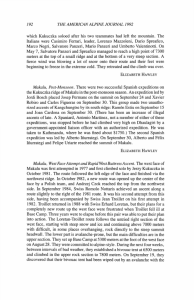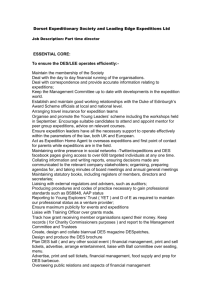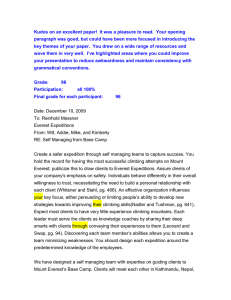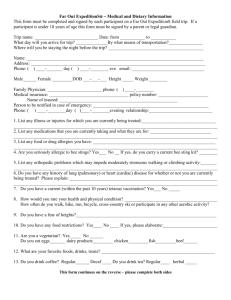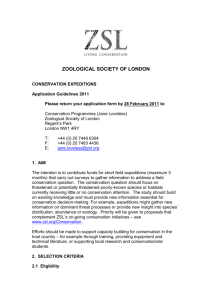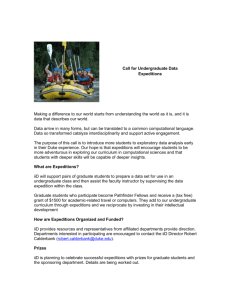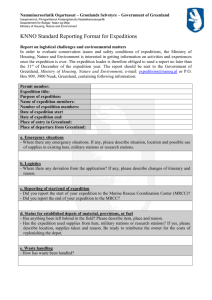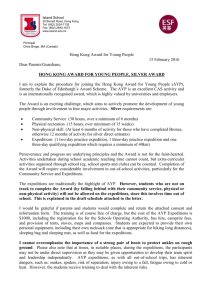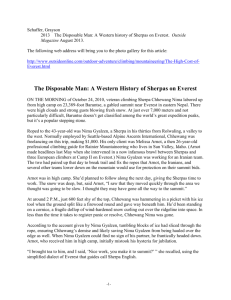msword
advertisement
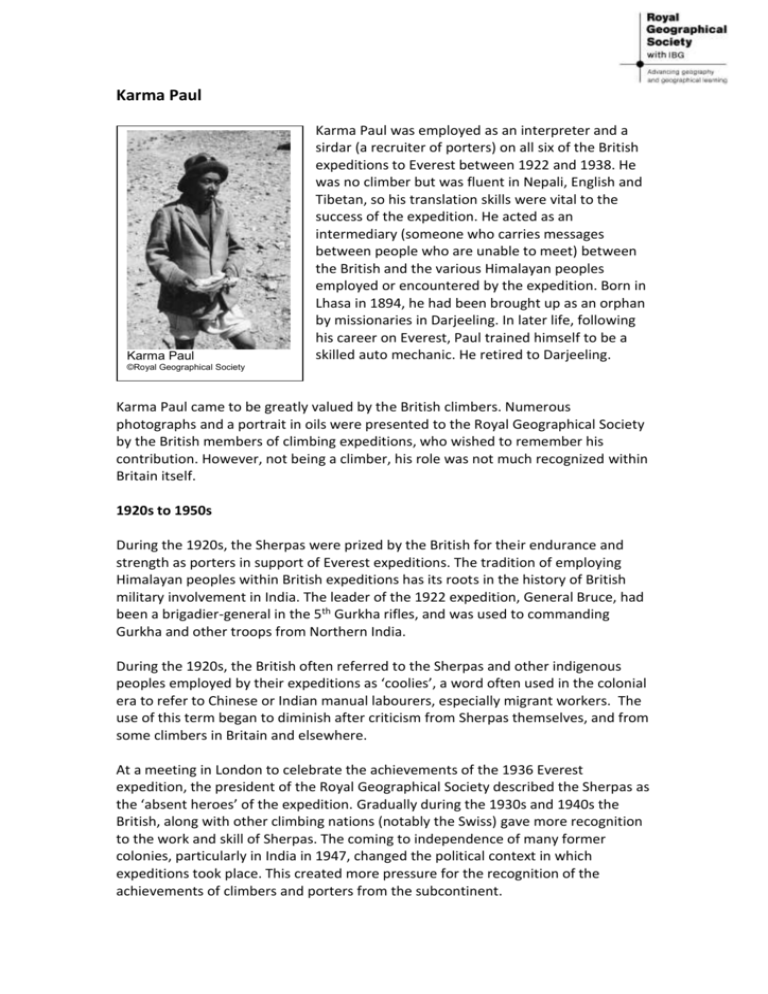
Karma Paul Karma Paul Karma Paul was employed as an interpreter and a sirdar (a recruiter of porters) on all six of the British expeditions to Everest between 1922 and 1938. He was no climber but was fluent in Nepali, English and Tibetan, so his translation skills were vital to the success of the expedition. He acted as an intermediary (someone who carries messages between people who are unable to meet) between the British and the various Himalayan peoples employed or encountered by the expedition. Born in Lhasa in 1894, he had been brought up as an orphan by missionaries in Darjeeling. In later life, following his career on Everest, Paul trained himself to be a skilled auto mechanic. He retired to Darjeeling. ©Royal Geographical Society Karma Paul came to be greatly valued by the British climbers. Numerous photographs and a portrait in oils were presented to the Royal Geographical Society by the British members of climbing expeditions, who wished to remember his contribution. However, not being a climber, his role was not much recognized within Britain itself. 1920s to 1950s During the 1920s, the Sherpas were prized by the British for their endurance and strength as porters in support of Everest expeditions. The tradition of employing Himalayan peoples within British expeditions has its roots in the history of British military involvement in India. The leader of the 1922 expedition, General Bruce, had been a brigadier-general in the 5th Gurkha rifles, and was used to commanding Gurkha and other troops from Northern India. During the 1920s, the British often referred to the Sherpas and other indigenous peoples employed by their expeditions as ‘coolies’, a word often used in the colonial era to refer to Chinese or Indian manual labourers, especially migrant workers. The use of this term began to diminish after criticism from Sherpas themselves, and from some climbers in Britain and elsewhere. At a meeting in London to celebrate the achievements of the 1936 Everest expedition, the president of the Royal Geographical Society described the Sherpas as the ‘absent heroes’ of the expedition. Gradually during the 1930s and 1940s the British, along with other climbing nations (notably the Swiss) gave more recognition to the work and skill of Sherpas. The coming to independence of many former colonies, particularly in India in 1947, changed the political context in which expeditions took place. This created more pressure for the recognition of the achievements of climbers and porters from the subcontinent.
